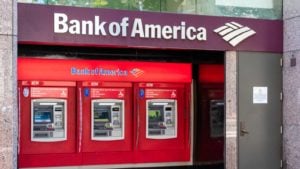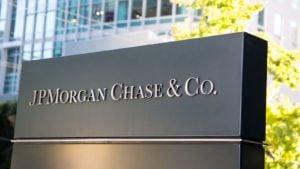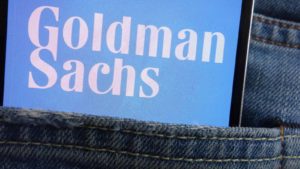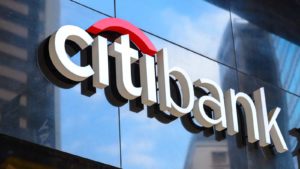[Editor’s Note: “5 Bank Stocks to Buy Now Because This Isn’t 2008 Again” was originally published in March 2020. It has since been updated to include the most relevant information.]
When the economy slips into a recession and the stock market tanks, investors are naturally inclined to sell bank stocks. After all, during the last recession and bear market in 2008, bank stocks were the biggest losers. Some financial stocks even went to zero. It should be no surprise, then, that bank stocks are tanking in 2020, as the rapidly spreading novel coronavirus pandemic has brought the global economy to a screeching halt.
Year-to-date, many bank stocks are down 25% or more. But here’s the thing: Not all recessions and bear markets are the same, and this isn’t 2008.
Back in 2008, banks were part of the problem. They had weak, overly levered balance sheets, with tons of risk. That risk was exploding all over the place, causing the economy to fall over itself. The government had to come in and save these banks from the apocalypse.
The situation couldn’t be more different this time around.
Now, banks are part of the solution. They have strong, asset heavy and highly liquid balance sheets, with mitigated risk. They’ve been prepping for a crisis like this over the past decade through multiple stress tests. And, in 2020, banks will actually be helping the government save other sectors of the economy.
So, should bank stocks be down in 2020? Absolutely. The economy has come to a halt. The Federal Reserve has cut rates to zero, and the yield curve has inverted.
But, should bank stocks be falling like its 2008 all over again? Absolutely not.
Banks today are in much better financial position than they were in 2008. They will survive this crisis. They will help others survive this crisis. And bank stocks will ultimately rebound.
With that in mind, here’s a list of five bank stocks to buy on the coronavirus dip:
- Bank of America (NYSE:BAC)
- JPMorgan (NYSE:JPM)
- Wells Fargo (NYSE:WFC)
- Goldman Sachs (NYSE:GS)
- Citigroup (NYSE:C)
Bank Stocks to Buy: Bank of America (BAC)

One of the best bank stocks to buy on the 2020 coronavirus dip is Bank of America.
At present, BAC stock is trading at 1.2-times its tangible book value, or net tangible equity (which is defined as book value, less intangible assets and goodwill). That’s markedly cheaper than the stock’s five-year-median price-to-tangible-book-value multiple of over 1.4
But, when you look at the financials, Bank of America is about as financially healthy as it’s ever been.
Its tangible book value is about $170 billion, more than three times where it was heading into the 2008 financial crisis. The current ratio is far above where it was back in 2008. The company’s debt-equity ratio is near 15-year lows.
From a financial perspective, Bank of America is as healthy as ever. Yet, BAC stock is about as cheap as it’s ever been.
This discrepancy will naturally resolve itself once coronavirus fears fade, the economy returns to normal, yields rise and the yield curve normalizes. When all that happens — and I think it could happen by the summer — Bank of America stock will bounce.
JPMorgan (JPM)

Arguably the highest quality bank in America — and among the best bank stocks to buy in the crisis — is JPMorgan.
Led by the only big bank executive who has survived since the Great Recession (Jamie Dimon), JPMorgan is headed by the best management team on Wall Street. This management team has innovated and executed tirelessly over the past several years, leading JPMorgan to steady revenue and profit growth — the likes of which has broadly outpaced every other big bank.
At the same time, the bank has a tangible book value of $180 billion, three times the tangible book value the company had heading into 2008. The debt-equity ratio is near 15-year lows, while return on assets and return on equity are near 15-year highs.
In other words, JPMorgan appears to be very healthy today. Yet, JPM stock trades at 1.7 times the company’s tangible book value — below its five-year-median tangible book value multiple of 1.9.
Yes, some of this discount is warranted by a slowing economy, falling rates and an inverted yield curve. But, most of those dynamics should turn favorable once the pandemic passes. Once those dynamics do turn favorable, the discount in JPM stock won’t be warranted — and shares will rebound.
Bank Stocks to Buy: Wells Fargo (WFC)

Retail banking giant Wells Fargo has had its fair share of public relations and trustworthiness problems over the past few years. Those headaches have translated into slower-than-peer growth for the bank for a few years now.
Wells Fargo was finally starting to shake off those issues in the back-half of 2019. Unfortunately, the coronavirus pandemic has subsequently short-circuited the Wells Fargo rebound. Year-to-date, WFC stock is down almost 50%, with shares trading hands around 0.9-times tangible book value (making it one of the cheapest bank stocks out there, and putting it far below the bank’s five-year-median tangible book multiple of 1.9).
That’s simply too cheap for this strong bank. Tangible book value stands at $125 billion, almost eight-fold what it was going into 2008, and it’s debt-equity ratio is about 30% lower than where it was back then. The bank has sufficient capital to weather this downturn, and enough firepower to grow sales and profits once the pandemic passes and the economy turns around.
WFC stock simply looks too cheap here. Too cheap doesn’t mean a huge rebound is around the corner.
But, it does mean that so long as the U.S. economy regains its footing over the next few quarters, this stock should head higher from here.
Goldman Sachs (GS)

Investment banking giant Goldman Sachs has been killed during the coronavirus selloff of 2020. Year-to-date, GS stock is down about 10%. Shares currently trade hands at 0.9 times tangible book value — one of their cheapest valuations since the 2008 financial crisis.
But, at risk of sounding like a broken record, this isn’t 2008.
Back then, Goldman Sachs had: 1) a tangible book value of $34 billion, and 2) a debt-equity ratio above 2. Today, Goldman has: 1) a tangible book value of $76 billion, and 2) a debt-equity ratio below 1.5.
In other words, this isn’t the same Goldman Sachs from 2008. It’s a much bigger and stronger Goldman that will both weather this current storm, and come out the other side with ample firepower to recharge growth alongside a rebounding U.S. economy.
From this perspective, the big drop in GS stock in 2020 to essentially all-time low valuation levels looks like a compelling opportunity to buy the dip.
Bank Stocks to Buy: Citigroup (C)

Last, but not least, on this list of bank stocks to buy is Citigroup.
Citigroup has long been an under-performer in the bank world, due mostly to lower-than-peer return on equity. It should be no surprise, then, that C stock presently trades at just 0.7-times tangible book value — one of the lowest valuation multiples the industry has ever seen out of any bank.
Yet, Citigroup has $150 billion in tangible book value, about three-fold that of what it had going into 2008. The debt-equity ratio is also around 1.4, substantially below the 3.5-plus levels it was at in 2007-08. Even further, the company’s return on equity has been trending higher over the past few quarters, and appears to be on track to hit industry-average levels soon (so long as the U.S. economy rebounds sometime in late 2020 or 2021).
Broadly, then, Citigroup is the cheapest bank stock out there, but this relative cheapness feels antiquated.
So, of all the bank stocks to buy on the dip, Citigroup may offer investors the most bang for their buck.
Luke Lango is a Markets Analyst for InvestorPlace. He has been professionally analyzing stocks for several years, previously working at various hedge funds and currently running his own investment fund in San Diego. A Caltech graduate, Luke has consistently been recognized as one of the best stock pickers in the world by various other analysts and platforms, and has developed a reputation for leveraging his technology background to identify growth stocks that deliver outstanding returns. Luke is also the founder of Fantastic, a social discovery company backed by an LA-based internet venture firm. As of this writing, he did not hold a position in any of the aforementioned securities.
Luke Lango is a Markets Analyst for InvestorPlace. He has been professionally analyzing stocks for several years, previously working at various hedge funds and currently running his own investment fund in San Diego. A Caltech graduate, Luke has consistently been recognized as one of the best stock pickers in the world by various other analysts and platforms, and has developed a reputation for leveraging his technology background to identify growth stocks that deliver outstanding returns. Luke is also the founder of Fantastic, a social discovery company backed by an LA-based internet venture firm. As of this writing, he did not hold a position in any of the aforementioned securities.
Luke Lango is a Markets Analyst for InvestorPlace. He has been professionally analyzing stocks for several years, previously working at various hedge funds and currently running his own investment fund in San Diego. A Caltech graduate, Luke has consistently been recognized as one of the best stock pickers in the world by various other analysts and platforms, and has developed a reputation for leveraging his technology background to identify growth stocks that deliver outstanding returns. Luke is also the founder of Fantastic, a social discovery company backed by an LA-based internet venture firm. As of this writing, he did not hold a position in any of the aforementioned securities.
Luke Lango is a Markets Analyst for InvestorPlace. He has been professionally analyzing stocks for several years, previously working at various hedge funds and currently running his own investment fund in San Diego. A Caltech graduate, Luke has consistently been recognized as one of the best stock pickers in the world by various other analysts and platforms, and has developed a reputation for leveraging his technology background to identify growth stocks that deliver outstanding returns. Luke is also the founder of Fantastic, a social discovery company backed by an LA-based internet venture firm. As of this writing, he did not hold a position in any of the aforementioned securities.
Luke Lango is a Markets Analyst for InvestorPlace. He has been professionally analyzing stocks for several years, previously working at various hedge funds and currently running his own investment fund in San Diego. A Caltech graduate, Luke has consistently been recognized as one of the best stock pickers in the world by various other analysts and platforms, and has developed a reputation for leveraging his technology background to identify growth stocks that deliver outstanding returns. Luke is also the founder of Fantastic, a social discovery company backed by an LA-based internet venture firm. As of this writing, he did not hold a position in any of the aforementioned securities.
